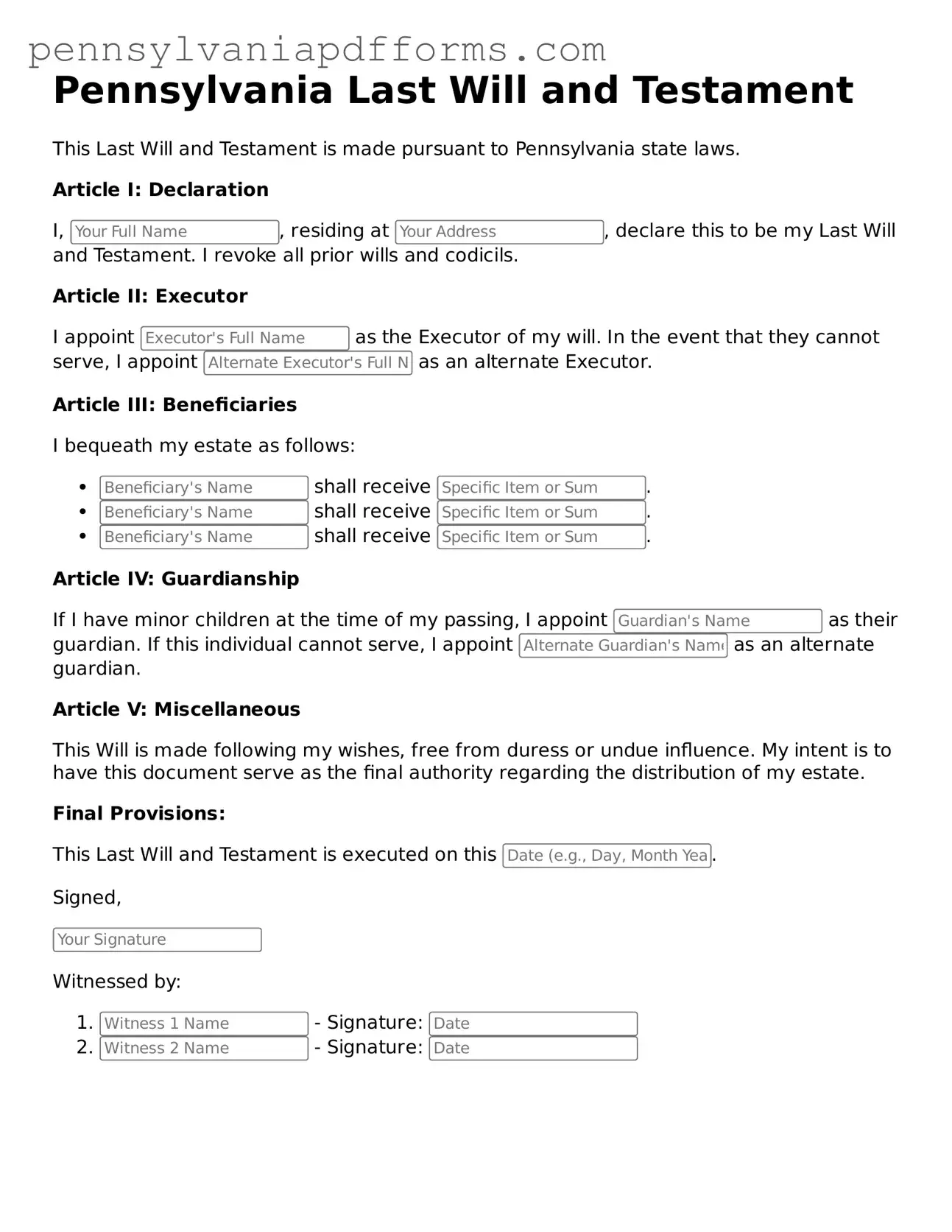The Pennsylvania Last Will and Testament form shares similarities with the Living Will, a document that outlines an individual's preferences regarding medical treatment in the event of incapacitation. While a Last Will dictates the distribution of assets after death, a Living Will provides instructions on healthcare decisions when a person cannot communicate their wishes. Both documents serve to express an individual's intentions and ensure that their desires are respected, albeit in different contexts—one for after death and the other for medical situations during life.
Another document akin to the Last Will is the Durable Power of Attorney. This legal instrument allows a person to designate someone else to make financial or legal decisions on their behalf if they become unable to do so. Like a Last Will, it is a proactive measure to ensure that one's affairs are handled according to their preferences. However, while the Last Will takes effect posthumously, the Durable Power of Attorney is effective during the individual's lifetime, emphasizing the importance of planning for both present and future circumstances.
The Revocable Trust, often referred to as a living trust, is another document that functions similarly to a Last Will. A Revocable Trust allows individuals to transfer their assets into a trust during their lifetime, which can then be managed by a trustee. This arrangement can help avoid probate, a legal process that can be lengthy and costly following death. While a Last Will only takes effect upon death, a Revocable Trust operates during the individual's lifetime, offering flexibility and control over assets, as well as a streamlined process for beneficiaries.
The Advance Healthcare Directive combines elements of both a Living Will and a Durable Power of Attorney for healthcare decisions. This document allows individuals to specify their medical treatment preferences and appoint a healthcare proxy to make decisions on their behalf if they are unable to do so. Like the Last Will, it aims to ensure that one's wishes are honored, but it focuses specifically on medical care rather than asset distribution. This dual purpose highlights the importance of comprehensive planning for both health and financial matters.
The Codicil is a legal document that serves as an amendment to an existing Last Will. It allows individuals to make changes to their will without having to create an entirely new document. This flexibility is crucial as life circumstances change, such as marriage, divorce, or the birth of a child. The Codicil must be executed with the same formalities as the original will, ensuring that the individual's updated intentions are legally recognized and enforceable.
When navigating the complexities of vehicle ownership transfer, it's important to utilize the right documentation, such as the Ohio Motor Vehicle Bill of Sale, to ensure legal compliance and clarity in the transaction. For those looking for a comprehensive resource, consider accessing the PDF Document Service to obtain the necessary templates and guidance.
Lastly, the Probate Inventory is a document that outlines the assets and liabilities of a deceased person's estate. While it does not dictate how assets are distributed, it is an essential component of the probate process that follows the execution of a Last Will. The Probate Inventory provides a detailed account of what the deceased owned, helping the executor fulfill their duties in accordance with the instructions laid out in the Last Will. This document underscores the interconnectedness of estate planning and the administration of an estate after death.

